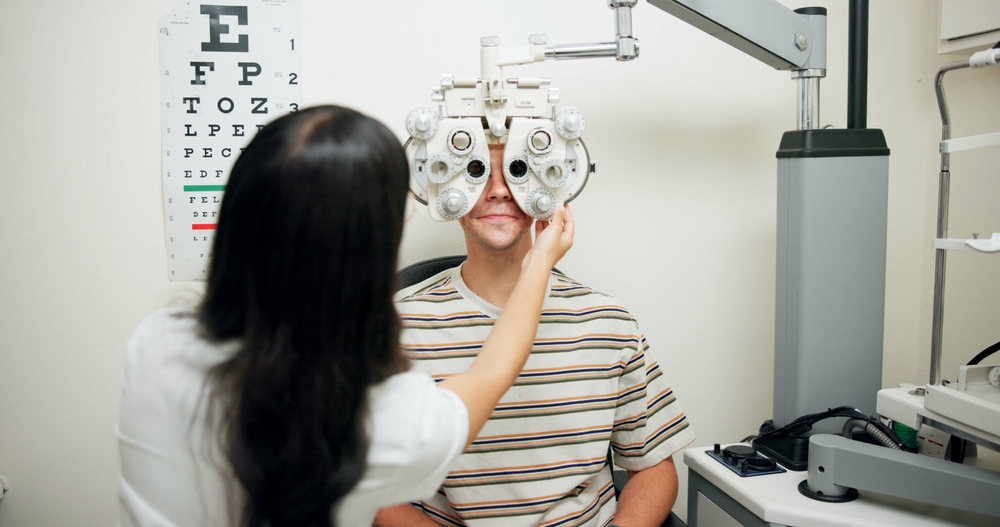
What Can a Comprehensive Eye Exam Detect in Eye Health?
A comprehensive eye exam is more than just a vision test; it's a thorough evaluation of your eye health that can detect a range of conditions and diseases early, allowing for timely treatment and preventing future complications. At General Vision Express Len Lab, we believe that routine eye exams are an essential part of maintaining not only your eyesight but your overall well-being.
Key Eye Health Issues a Comprehensive Eye Exam Can Detect
• Refractive Errors: The most common purpose of an eye exam is to detect refractive errors such as nearsightedness (myopia), farsightedness (hyperopia), astigmatism, and presbyopia. These errors occur when light entering the eye is not properly focused, leading to blurry vision. Fortunately, they can easily be corrected with glasses, contact lenses, or refractive surgery.
• Cataracts: Cataracts occur when the eye's natural lens becomes cloudy, causing blurry vision, glare, and difficulty seeing at night. Comprehensive eye exams can detect the early formation of cataracts, allowing for monitoring and, eventually, treatment with cataract surgery when necessary.
• Glaucoma: Often referred to as the “silent thief of sight,” glaucoma can cause irreversible damage to the optic nerve, leading to vision loss. Because symptoms often don’t appear until significant damage has occurred, regular eye exams are critical for early detection. Tests that measure eye pressure and examine the optic nerve are key components of glaucoma detection.
• Age-Related Macular Degeneration (AMD): AMD is a leading cause of vision loss in older adults and affects the macula, the part of the eye responsible for sharp, central vision. Early detection through retinal imaging and other eye health assessments can help slow the progression of this disease and preserve as much vision as possible.
• Diabetic Retinopathy: For individuals with diabetes, a comprehensive eye exam can detect early signs of diabetic retinopathy, a condition that damages the blood vessels in the retina. Left untreated, it can lead to blindness. Detecting this condition early allows for better management of both eye health and diabetes.
• Dry Eye Syndrome: Chronic dry eye syndrome can lead to irritation, discomfort, and even vision issues if left untreated. A comprehensive exam can assess the severity of your dry eyes and help determine the best treatment options to manage your symptoms.
• Eye Infections and Inflammations: An eye exam can also reveal signs of conjunctivitis, uveitis, and other infections or inflammatory conditions that can affect the eye. Early diagnosis ensures that you receive appropriate treatment, preventing further damage.
Systemic Health Conditions Detected Through Eye Exams
Beyond eye-specific conditions, a comprehensive exam can also reveal underlying systemic health issues. Your eyes can show early signs of conditions that affect the entire body, including:
• Hypertension (High Blood Pressure): Hypertension can cause damage to the blood vessels in the retina, leading to a condition known as hypertensive retinopathy. Your optometrist can detect changes in your retinal blood vessels, which may indicate that your blood pressure is not well controlled.
• Diabetes: In addition to diabetic retinopathy, other changes in your eye’s blood vessels can signal poorly managed blood sugar levels. Detecting these changes early can prompt patients to seek better management of their diabetes, protecting their vision and overall health.
• Autoimmune Disorders: Certain autoimmune diseases, such as lupus and rheumatoid arthritis, can cause inflammation in various parts of the eye. A comprehensive eye exam can help detect these changes, leading to a more thorough evaluation by your healthcare provider.
• Thyroid Disease: Thyroid conditions, such as Graves’ disease, can lead to bulging eyes (exophthalmos), double vision, and other eye issues. These changes are often first detected during an eye exam.
Schedule Your Eye Exam with General Vision Express Len Lab Today
Routine eye exams are a powerful tool for preserving your vision and detecting serious health conditions. At General Vision Express Len Lab, we recommend comprehensive eye exams every 1-2 years, depending on your age, medical history, and risk factors. Whether you wear corrective lenses or not, your eyes deserve the attention and care that regular exams provide.
Schedule your comprehensive eye exam with General Vision Express Len Lab. Contact our office in Brooklyn, New York, by calling (718) 486-6055 to book an appointment today.









